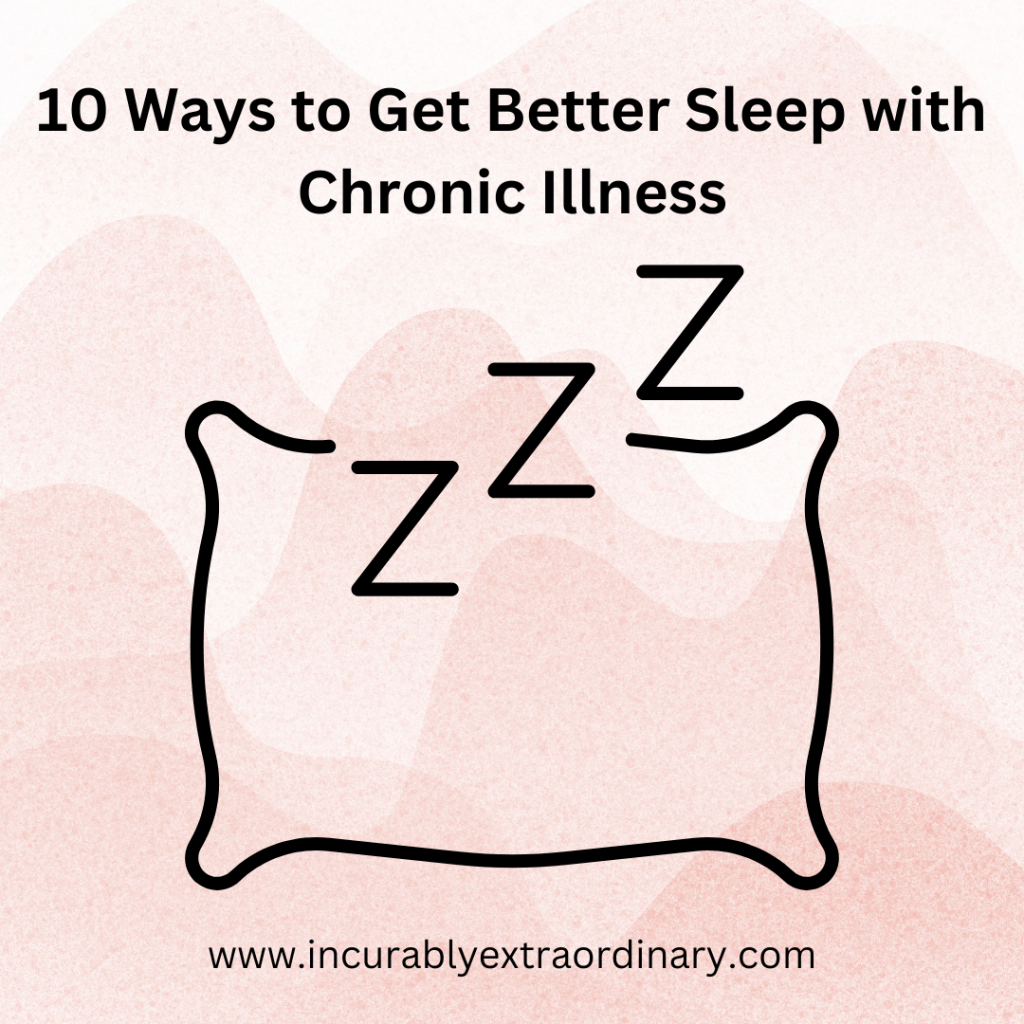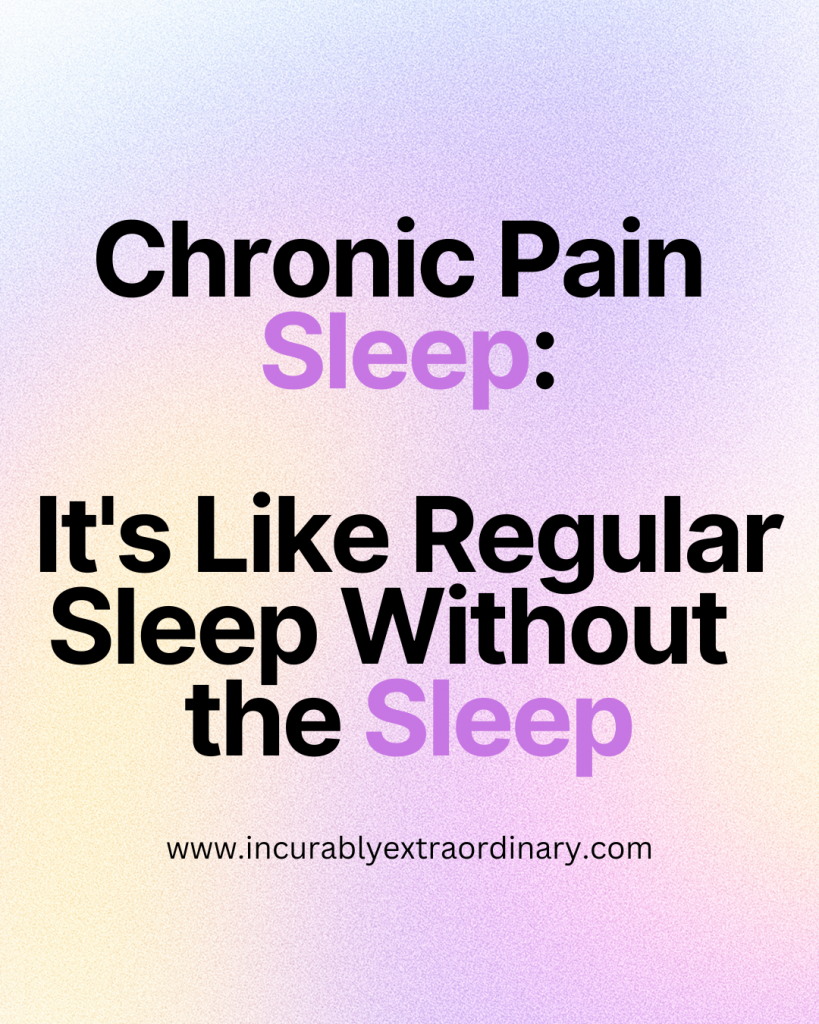10 Ways to Sleep Better with Chronic Illness
Sleep is difficult for those of us who have a chronic illnesses. Sleep is also a very important body function. Without sleep, stress can be amplified. Amplified stress can lead to more inflammation and a flare. Here are ten things I have found that help to sleep better when you have a chronic illness.

1. Sleep Schedule
Keep a consistent sleep schedule. Go to bed and wake up at the same time each day, even on weekends. The brain loves routine and a good sleep routine helps the brain to know when it is time to wind down for the day.
2. The Bedroom is Only for Sleep and Sex
Your bedroom should be only for sleep and sex. Avoid the temptation to nap in bed or watch tv in bed. Naps and lying down to watch TV is often a must, especially for flare days. Try to nap on the couch or an armchair. This way the brain associates the bedroom with rest (or sex)!
3. Avoid Technology Two Hours Before Bed
For the best sleep possible, avoid using your phone or tablet two hours before bed. Lots of research has been done on blue lights and their effect on the brain. Researchers believe that blue light suppresses the production of melatonin. Melatonin is a chemical the body manufactures to tell the brain it is time to sleep. If you must use technology, think about getting some blue light glasses or turning off the blue lights on your phone or tv.
4. If You Have Not Fallen Asleep After Twenty Minutes
If you are lying awake and twenty minutes have passed and you are still awake the best thing to do is get out of bed. Leave the bedroom and do something else that will make you tired. Read a book, colour, crochet or anything else that will distract you from your pain. Choose a relaxing activity.
5. Keep Your Bedroom Cool
It is better to fall asleep in a cool bedroom. The ideal temperature is between 17-19 C (60-65 *F). Our bodies sleep better when they are cool because it requires less energy.
6. Find the Right Pillow(s)
My chronic illness comes with various body pain. The areas sometimes change depending on flares or my activities during the day. Having the right pillows to support my body during sleep is very important. I have tried many many pillows. I keep a variety of pillows in my closet because my support needs can change from day to day. The pillow I find comfort with one night may irritate me the next night. I own a pillow collection.
7. Journal for a Better Sleep with a Chronic Illness
At the end of the day journal. You can write about your worries, pain levels, joints affected and anything you try to manage your pain. Writing things down can help to manage anxiety. It can also provide a record to share with your doctor. Don’t forget to write about one thing that you are grateful for each day.
8. No Caffeine After 3 pm
Not consuming caffeine after 3 pm is very important, especially if you are having difficulty sleeping. Caffeine can remain in your system for 6-8 hours after consumption. If you are craving a hot cup of Joe in the evening, make it a decaf. Make sure to eliminate all other forms of caffeine such as soda.
9. Avoid Alcohol to Sleep Better When You Have a Chronic Illness
This is something some of us can no longer do anyway. For me consuming even one glass of wine can make for more inflammation and pain the next day. I enjoy a nice glass of red wine, but I have to consider whether it is worth the side effects. Alcohol also does not mix well with the medications I take to control my symptoms. Alcohol can make for a very disruptive sleep and interferes with melatonin production.
10. Explore Supplements and Medications with Your Doctor
It’s important to let your doctor know that you are not sleeping well. You can explore things like sleep apnea or other sleep disturbances. These are both known to occur with many chronic illnesses. Also, review your medication and make sure that your pain is under control. Maybe going to a pain clinic. You can also ask about trying some natural supplements like melatonin.
Finding a way to get the best sleep possible is important to daily functioning. It is hard to endure regular life stresses without some half-decent sleep. Sleep is not cumulative.
I have currently had a sleep study done to rule out sleep apnea or any other type of sleep disturbance. For me, most night pain keeps me up. I wake up stiff and have to change positions to try and find some comfort. Every morning I am fatigued and never feel quite rested. I have some decisions to make to reduce my stress and hopefully make for some more restful nights. This is a journey and there is so much to research and figure out.
